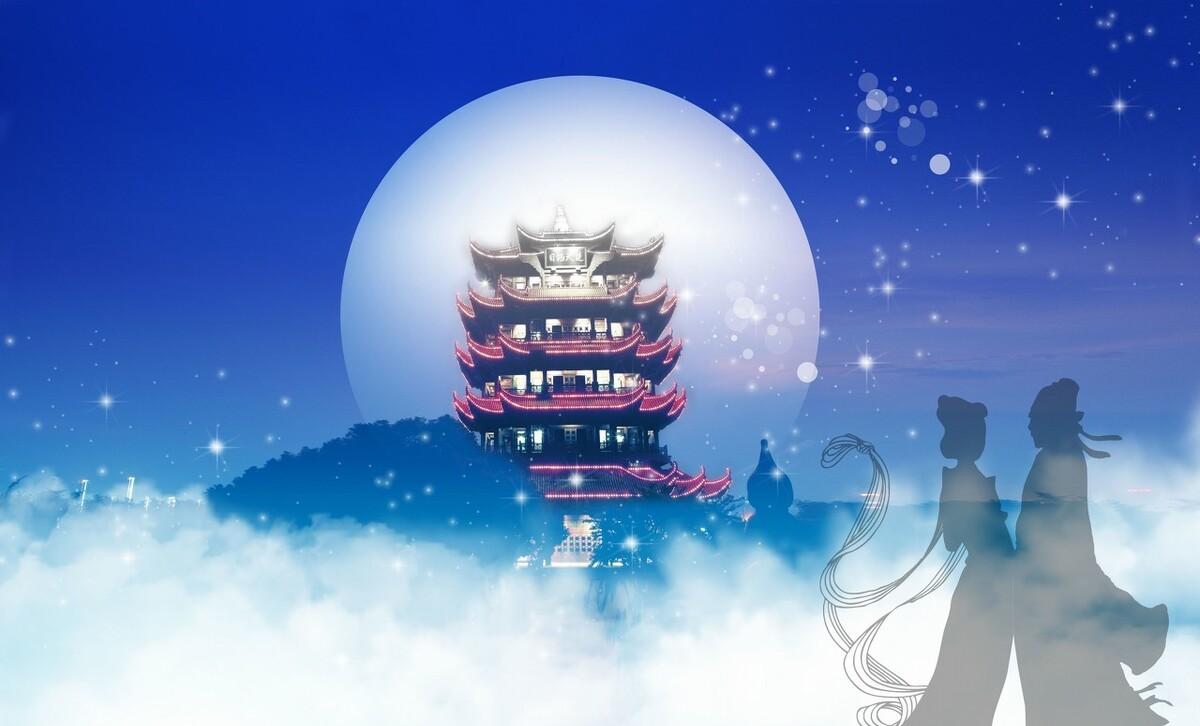"Beggar"
Don Lin Jie
Tanabata tonight to see the blue sky, morning glory weaver girl across the river bridge.
The family begged for the autumn moon and wore tens of thousands of red silks.

Text/Nirvana Sanshui
Beggars, it's a festival, what kind of festival is it?
At first, after I threw the question out, the children started chattering.
"Beggars is the Tanabata Festival, the seventh day of the seventh month of the lunar calendar."
"Beggars is the day of July 7, when the cowherds and weavers meet."
"Beggar, it's Our Chinese Valentine's Day, boyfriend and girlfriend will meet on this day, and parents will also meet on this day."
"Beggars is a reunion festival, and lovers have to meet on this day."
That's probably what the children know, and what they know is revealed at this moment.
~~
Now that we know what day it is, do we know what the word "beggar" means?
When the question was thrown up again, the classroom was quiet for a while.
"Beggar, beggar means beggar, qiao means dexterity..."
A child was muttering to himself, and before he could say anything, he was interrupted by another voice—
"To beg is to be like a beggar, to pray for a pair of dexterous hands."
When this came out, I wanted to laugh a little, but then I asked, "Who is going to pray?" To whom do you pray? ”
The child who was questioned suddenly realized and quickly answered the question: "Oh, oh, oh, our common people, pray to the weaver girl in heaven for a pair of dexterous hands." ”
It was so nice to say this, I raised my hand and applauded.
In order for the children to understand more thoroughly, I added some knowledge.
The seventh night of the first month of the seventh month of the lunar calendar, commonly known as "Tanabata", also known as "Daughter's Day" and "Maiden's Day", is the legendary day when cowherds and weavers meet on the Queqiao Bridge across the "Tianhe".
In ancient times, the most important folk activities of Tanabata were begging.
The so-called beggar is the meaning of begging the weaver girl for a pair of clever hands.
Begging, the most common way, is to needle the moon.
If the thread passes through the pinhole, it is called a coincidence.
This custom was most prevalent in the Tang and Song dynasties.
Let's talk about what you feel from every sentence of this poem?
"The blue sky, the turquoise clouds, refers to the vast night sky, and on the night of Tanabata, people have to see the starry sky in the sky."
"I saw the morning glory weaver girl meeting on the Queqiao Bridge."
"The Morning Glory Weaver Girl is our Chinese folk tale, a Chinese that will be seen on this day."
"Cowherd Weaver Girl, Queqiao meet, full of Chinese good wishes, on the day of Tanabata, every Chinese to see the stars, are looking forward to a good life." 」
"On this day, every family will look at the stars in the sky."
"Every girl in every family will thread the needle in the starry sky, and when she puts it on, she will have a pair of skillful hands and can get a beautiful and happy life."
"On this night, thousands of red threads are pierced into the pinholes, and every girl has a vision and yearning for a happy life."
Listening to the children say this, I can't help but stick out my thumb and like them.
The meaning of each verse, the children twittered, and the narrative was almost complete.
After reading this poem, do you have anything to say?
The classroom was quiet for a while, and a girl spoke, "When it comes to the Tanabata Festival, let's also go and thread the needle against the moon?!" ”
Welcome just fell, another girl interface: "I suspect, I can't wear a single thread." ”
Hearing this, I smiled, walked over to my side and asked, "Why?" I can't wear a single one. ”
The girl's answer blurted out: "I've never touched a needle!" ”
Suddenly, it caused a burst of laughter in the classroom, how many people in today's society wear needles and leads?
Finally, I introduce the poet.
Lin Jie, a native of Fujian, was a poet of the Tang Dynasty.
The children listened quietly, eyes fixed on me.
Lin Jie was very intelligent when he was a child, and at the age of six, he could write poetry, write chapters, and master calligraphy and chess.
(⊙o⊙)哇!
The children's surprise and cheers were evident on their faces.
However, Lin Jie died at the age of seventeen, and only two poems survived in the Quan Tang Poems.
As soon as this sentence came out, the children's faces were suddenly darkened.
The fall of this young life, at any time, will cause pain in people's hearts, let alone such an outstanding poet.
What kind of mood should a teenage poet who has left us such a wonderful poem be in?
When this sentence was said, the body of each child was invisibly straightened up, and the original paralyzed waist was suddenly straight and straight.
"Did the poet die of illness?" At the age of 17, he has greater expectations for a happy life. ”
"Did the poet die because of an accident?" At the age of 17, his happy life has not yet begun! ”
Children, let us recite this poem to the poet with consolation to the poet, so that the poet can feel the good life we have today from our voices.
So, the children's recitation sounded in the classroom, swaying out of the doorway through the window and reverberating throughout the campus.